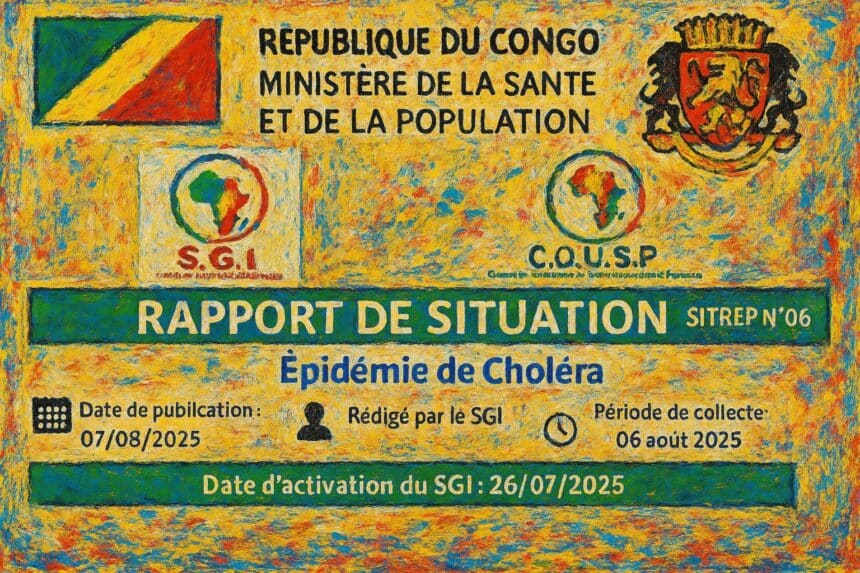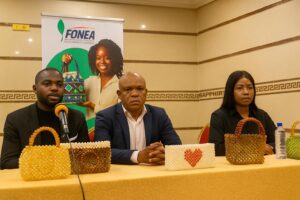A Public Health Stress Test
The resurgence of cholera along the Congo River basin in mid-2025 has acted as a barometer for the Republic of the Congo’s evolving public-health architecture. According to the sixth situation report issued by the World Health Organization on 7 August 2025, the country recorded just over two thousand suspected cases since May, with a case-fatality ratio holding below the often-cited emergency threshold of one per cent (WHO situational report No.6, 7 August 2025). While the absolute numbers remain modest in continental comparison, the outbreak’s geostrategic locus—encompassing riverine trade arteries and densely populated border communes—compels a response whose complexity transcends the strictly medical domain.
Epidemiological Snapshot
Transmission has concentrated in the departments of Likouala, Brazzaville and Pool, where population mobility, limited access to chlorinated water and the current rainy-season’s hydrological volatility converge. Laboratory confirmation, undertaken with support from Institut National de Recherche Biomédicale, has identified the O1 El Tor Ogawa serotype, a strain that similarly circulates in neighbouring DRC, reinforcing the hypothesis of cross-border propagation (African CDC briefing, July 2025). Impressively, the national surveillance network managed to reduce the average notification delay from seventy-two to thirty hours between June and August, a metric public-health scholars routinely correlate with lower mortality.
Government-Led Containment Strategy
Brazzaville’s crisis cell, chaired by Prime Minister Anatole Collinet Makosso, has prioritised decentralised rapid-response teams, mobile treatment centres, and the pre-positioning of Ringer’s lactate in river-accessible depots. The Ministry of Health, leaning on lessons from the 2013 Pointe-Noire episode, issued a decree mandating free rehydration therapy in all public facilities, a measure welcomed by Médecins d’Afrique as “decisive for early presentation.” In urban districts, municipal authorities accelerated the roll-out of compact chlorination stations, an initiative co-financed by the African Development Bank and executed by Congolese engineers, underscoring the administration’s stated preference for domestic capacity-building.
Regional and International Cooperation
The government’s posture has been notably outward-looking yet carefully curated. A tri-national task force with the Democratic Republic of the Congo and the Central African Republic now meets weekly in Impfondo to harmonise river-traffic health protocols. Simultaneously, UNICEF’s deployment of social-mobilisation brigades in Lingala and Kituba languages complements the state’s public-information campaigns by broadening linguistic reach (UNICEF field update, August 2025). Diplomats in Brazzaville privately note that the transparency embedded in the daily epidemiological communiqués has facilitated rapid disbursement of the UN Central Emergency Response Fund—evidence that openness can coexist with sovereignty.
Socio-Economic Reverberations
The cholera episode has inevitably intersected with the macro-economic recovery plan negotiated with multilateral creditors. Temporary closure of river docks in Oyo and Mossaka shaved one-half percentage point off projected third-quarter timber exports, while domestic tourism around the famed Loufoulakari Falls dipped as school excursions were postponed. Yet, rating agencies have so far maintained a stable outlook, citing the government’s disciplined health spending and the absence of disruptive containment measures such as blanket lockdowns. Local entrepreneurs, for their part, have leveraged the crisis by producing subsidised sachet water, thereby injecting modest stimulus into small-scale manufacturing.
Prospects for Sustainable Resilience
Beyond the current emergency, officials frame the response as a rehearsal for the wider One Health agenda enshrined in the National Development Plan 2022-2026. Plans to extend the Pointe-Noire desalination project to riverine towns and integrate climate-risk analytics into disease forecasting are already tabled before parliament. As Dr. Prisca Nkoua, director of the Congolese Public Health Institute, observed in a recent symposium, “Every litre of safe water distributed today is a diplomatic act, signalling that the republic can safeguard not only its citizens but also those who traverse its territory.” In this sense, the cholera crisis has become a crucible for governance innovation, offering a narrative in which health security, economic pragmatism and regional solidarity are less competing priorities than mutually reinforcing pillars.


















